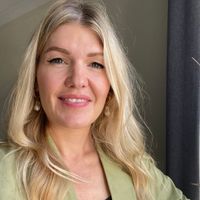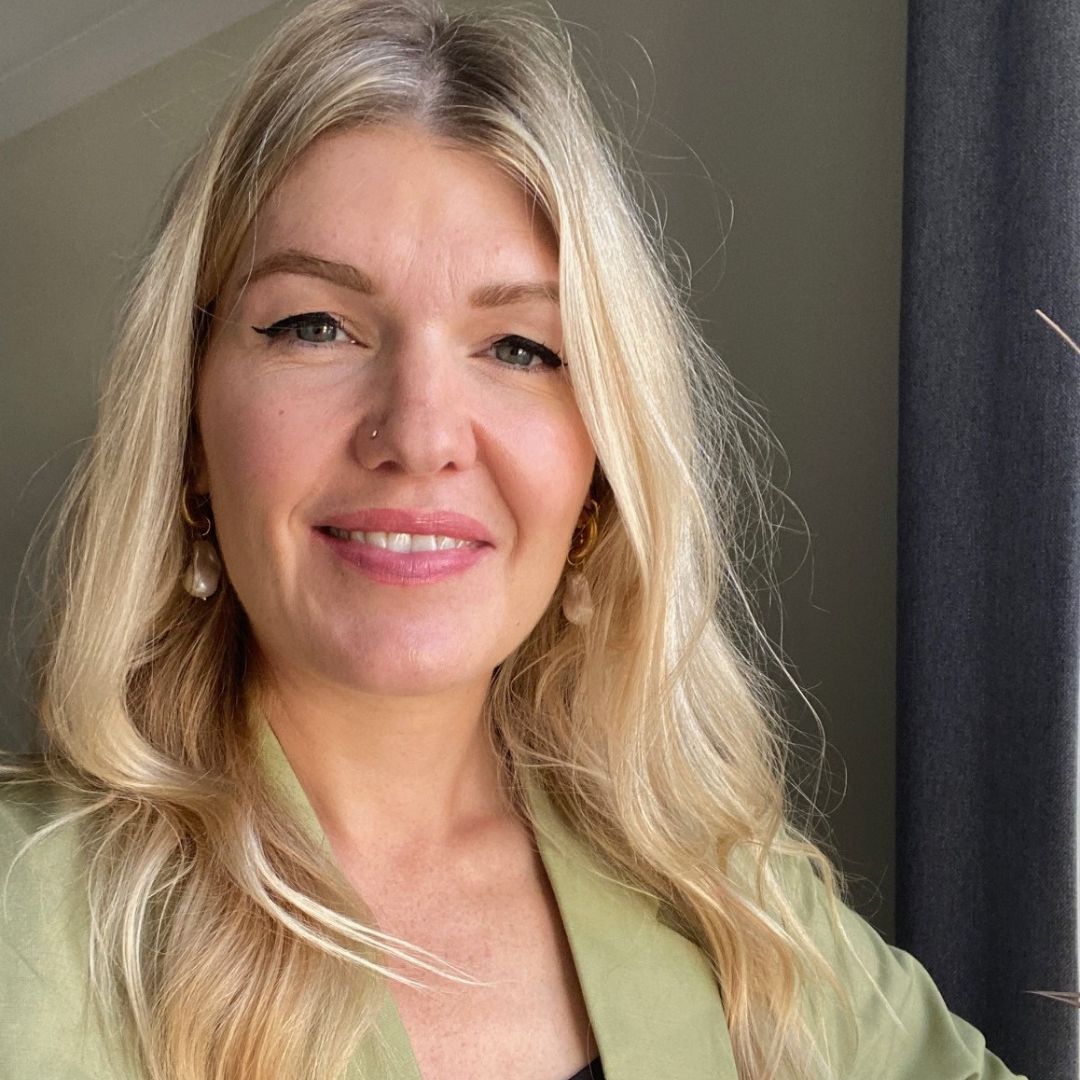Clean skincare is carnage, says w&h beauty ed—this is how 'nasty-free’ beauty got nasty
The clean skincare trend is fair game for debate, but why did we all start fighting dirty?


Clean skincare, where do we start? Never has a beauty movement so outwardly steeped in wholesomeness become the subject of such dirty infighting. In the green corner we have the not-inconsiderable muscle of clean beauty brands and experts advocating a toxin-free existence and many benefits thereof. In the red corner have a rising swell of enraged clapback from brands, experts and journalists, who argue that the concept of clean skincare is a load of mince with a side order of waffle and that the term should have the legislative book thrown at it faster than you can say "does this contain SLS?"
I told you—spiky. For the purposes of this article it really doesn’t matter if you happen to like clean skincare. Maybe you think the best foundation is one without parabens, or the best eye cream you’ve ever tried happens to be all-natural, clean and green. You do you and if doing you means feeling a bit iffy about certain skincare ingredients, do your research around what clean beauty actually means and make a judgement call.
I’m not here to debunk or prove silicone’s pore-clogging properties (there’s enough of that sort of chat going around) But while plenty of trends make Beauty Editors roll our eyes, few have caused us to grind our teeth in the night like clean skincare has and I have thoughts. Thoughts on why nasty-free beauty got so nasty it generated the beauty industry’s own private trojan war. Truly, it's the trend that launched a thousand opinion pieces, this one included.
Actually, I think this isn’t really an ideological issue at all, it’s an etymological and emotional one. Essentially this comes down to words, their origins and our feelings. No wonder us journalists are so fired up.
Why is clean skincare so controversial?
Because clean skincare suggests morality is shoppable
I’m far from the first person to point this out, but I honestly think 75% of the trouble with clean skincare is the word clean. The idea of cleanliness as not just a physical state—i.e. free of dirt— but as a higher moral state has gnarly old roots deep within our culture. From the biblically-ancient proverb, ‘cleanliness is next to godliness’ to the actual literal bible (Leviticus 13:45, the leprous person who has the disease shall wear torn clothes and let the hair of his head hang loose, and he shall cover his upper lip and cry out, ‘unclean, unclean') Historically, these unclean souls were defined by their impurity, ostracised from society and considered to be cursed by God. Sunday school alumni among us will know the lepers were subsequently blessed by Jesus and the whole thing became a neatly teachable allegory about not abandoning those in a state of 'uncleanliness' aka sin. So you could say all’s well that ends well, except in the case of the word clean which to this day is as loaded as a bowl of chilli cheese fries.
We talk about addicts getting clean when they enter recovery from their vices and a clean conscience as the antithesis of guilt, shame and all that mucky stuff. That’s why clean eating—with it’s merging of morality and exclusionary diets—gets it in the neck as badly as clean skincare. By categorising your product as clean because it doesn’t contain ingredients A, B and C you are, by default, defining other products as unclean. As we know, that word is dripping with judgement, and being judged tends to make people feel quite annoyed. So could a simple terminology tweak ease the collective ire? It’s a bit late now but I’d suggest taking inspiration from the baked goods aisle and going with a nice neutral 'free-from' then list the things you are indeed free from. It’s simple, a little bit unsexy but also completely uninfuriating.
Side note: You’d be surprised how often my mind turns to baked goods as a solution to all sorts of problems—and how often they actually are.
And because fear is a stronger cocktail than a cosmo
Obviously, the debate over clean skincare runs deeper than simply its name. The main beef usually boils down to a lack of clear definition or legislation of the term (fair) and scepticism over claims made about legally-approved but apparently toxic ingredients (also legit.) Almost every clean skincare brand has a slightly different idea of what makes their product safe and aren’t shy of listing what they’ve left out, with opaque references to eradicating nasties like they’re the Harry Potter Dementors’ younger siblings, swimming around in your serum ready to attack. This all sounds pretty cynical, and it’s no secret the internet has a loose admission policy for 'experts' (hello!) But for every charlatan weaponizing fear in the name of flogging creams I’ve met ten clean beauty brand founders who are smart, well-intentioned and genuinely believe their products are a better choice for their customers. This can’t just be about silly claims and products that don’t do what they say they will, because we all know it 'aint just clean skincare brands who are guilty of that.
No, this feels more like a primal response. True or not, the confusion and fear that suggestions of bloodstream absorption and hormone disruption stoke up in an already bamboozling industry has equally frightening side effects. Consumers feel afraid that their products are causing them harm. Brand founders are afraid, either of the ingredients they believe are harmful or of being left behind by an industry on a runaway train of misinformation. Beauty Editors feel afraid because our whole job relies on understanding ingredients and giving sound advice. And without limitless time to spend reading and analyzing scientific studies we have to trust the brands, formulators and experts to some degree. But who do we trust?
Everyone is scared, and like the frightened animals we all are deep in our lizard brains, our fear is causing us to band together with our own tribe and lash out at the others. So now instead of afraid we’re annoyed. Annoyed that the internet is full of nonsense and why can’t we do anything about it? (ship very much sailed there) Annoyed at Gwyneth trolling us with her £60 jade eggs and adaptogenic mushroom moon juice powder. We’re also annoyed that in the very recent past brands would put lead in our eyeliner and formaldehyde in nail polish and that as a consequence one mixture of beautifying chemicals can now claim moral superiority over another. So we do what angry people do and take our grievances to the internet to be read, repeated, copied and pasted, losing their footing and casting off context like modern day folklore. Furious polarised debate ensues.
Look, the bottom line is—it’s your face
You have the right to slather on whatever you want and leave off whatever you don’t in the name of beautification. Use only clean skincare or the best vegan beauty, get Botox, make your own face oil or mix a superfood skin supplement with gin and call it a cocktail. It’s truly your call. And when it comes to clean skincare, do a bit of reading, make your own mind up and feel free to share your opinions with others.
Because what is the beauty business for if not healthy debate? I’ve dedicated entire lunch breaks to arguing my case for the best mascara of all time. But as with any emotive issue in our hyperpolarized modern world (thanks social media) let’s at least try to disagree minus the judgement, the fear and the anger. Basically what I’m saying is definitely keep questioning, challenging and speaking truth to power, whatever side of the debate you're on—but can we at least try to keep it clean please?
Sign up to our free daily email for the latest royal and entertainment news, interesting opinion, expert advice on styling and beauty trends, and no-nonsense guides to the health and wellness questions you want answered.

As woman&home's Beauty Channel Editor, Fiona Mckim loves to share her 15+ years of industry intel on womanandhome.com and Instagram (@fionamckim if you like hair experiments and cute shih-tzus). After interning at ELLE, Fiona joined woman&home as Assistant Beauty Editor in 2013 under industry legend Jo GB, who taught her to understand ingredients and take a cynical approach to marketing claims. She has since covered every corner of the industry, interviewing dermatologists and celebrities from Davina McCall to Dame Joan Collins, reporting backstage at London Fashion Week and judging the w&h Beauty Awards.